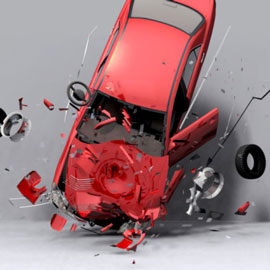 Be honest: how often do you forgo the seatbelt in the name of comfort?
Be honest: how often do you forgo the seatbelt in the name of comfort?
Driving without a seatbelt is a huge safety hazard, yet every day people get in the car without buckling up first. For some, not fastening their seatbelt is a result of a poor habit, but for others it is a conscious decision. Obese drivers in particular are less likely to buckle up when they are behind the wheel, as seatbelts are often tight and uncomfortable. If you are ready to take the life-altering step of pursuing bariatric surgery and are getting a Lap Band, then it is important for you to reduce your risk of a deadly accident by buckling your seatbelt.
Healthy weight drivers are 67 percent more likely than obese individuals to wear a seatbelt. What is more, one study recently completed at the University of Buffalo found that obese drivers are actually 56 percent more likely to die in a car crash than are those of a normal weight level.
To find these statistics, researchers examined the BMIs of over 300,000 drivers who were in a severe car crash in which a death occurred between 2003 and 2009. Based on the accident reports, the researchers were able to determine in each accident whether the driver or passenger injured was wearing a seatbelt, and how this correlated to their weight level. The findings are alarming for the overweight community, as an increased risk of death in a car accident is now another factor that can be connected to obesity.
A tight seatbelt is not an excuse. When you are in a car, you should always be wearing your seatbelt.
This is hard for a lot of obese people to come to terms with because seatbelts can be very uncomfortable. When you go flying, you need to take precautions to ensure that you have a seat belt extender and will be able to buckle up and fly without issue. Over 50,000 people are killed annually on the highway, yet the likelihood of an incident on an aircraft is one in 11 million. It is time to take your car seatbelt just as seriously.
The good news is that as you lose weight your seatbelt will become more comfortable. In many cars, seatbelts begin to lose their pull and remain loose even after you take them off. If this happens in your car and you find that your seatbelt is in fact too big for you after you lose a great deal of weight, it is important that you take it in to be fixed. Your seatbelt should fit snugly around your waist and chest, allowing movement while holding you properly in your seat.
Not wearing your seatbelt is one choice that you may not get the chance to regret. You are taking such positive strides by undergoing bariatric surgery. Let this positivity extend throughout other aspects of your life. Properly wearing your seatbelt is just another healthy lifestyle choice you should be making daily.

Leave a Reply